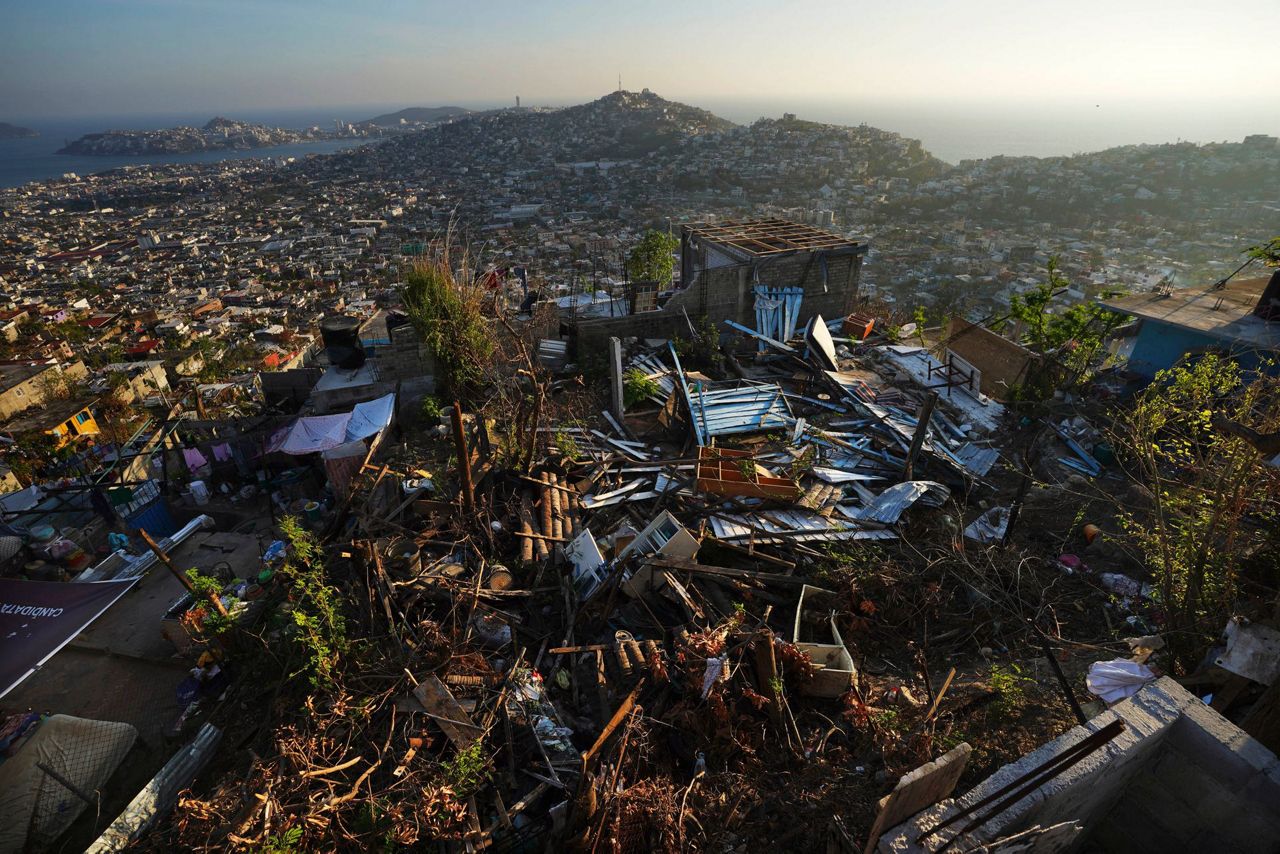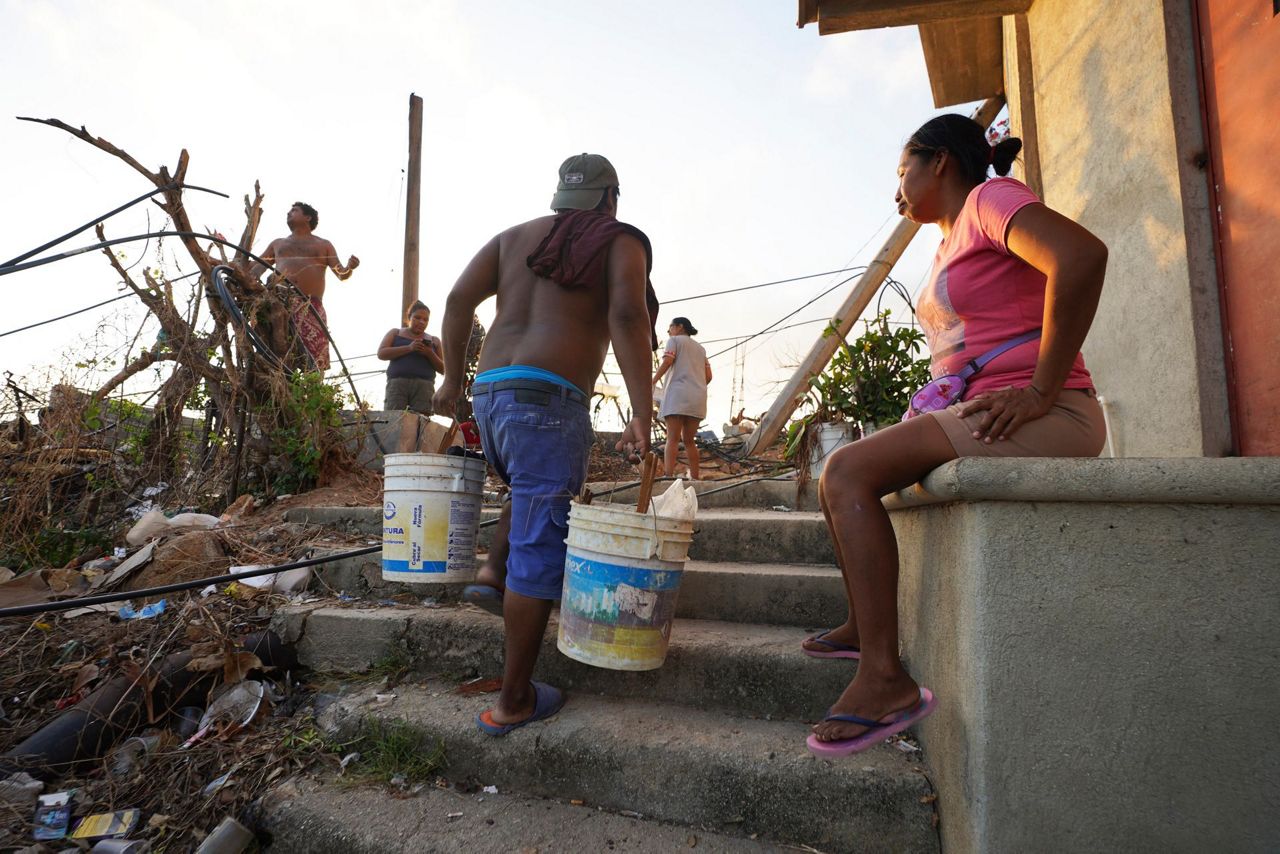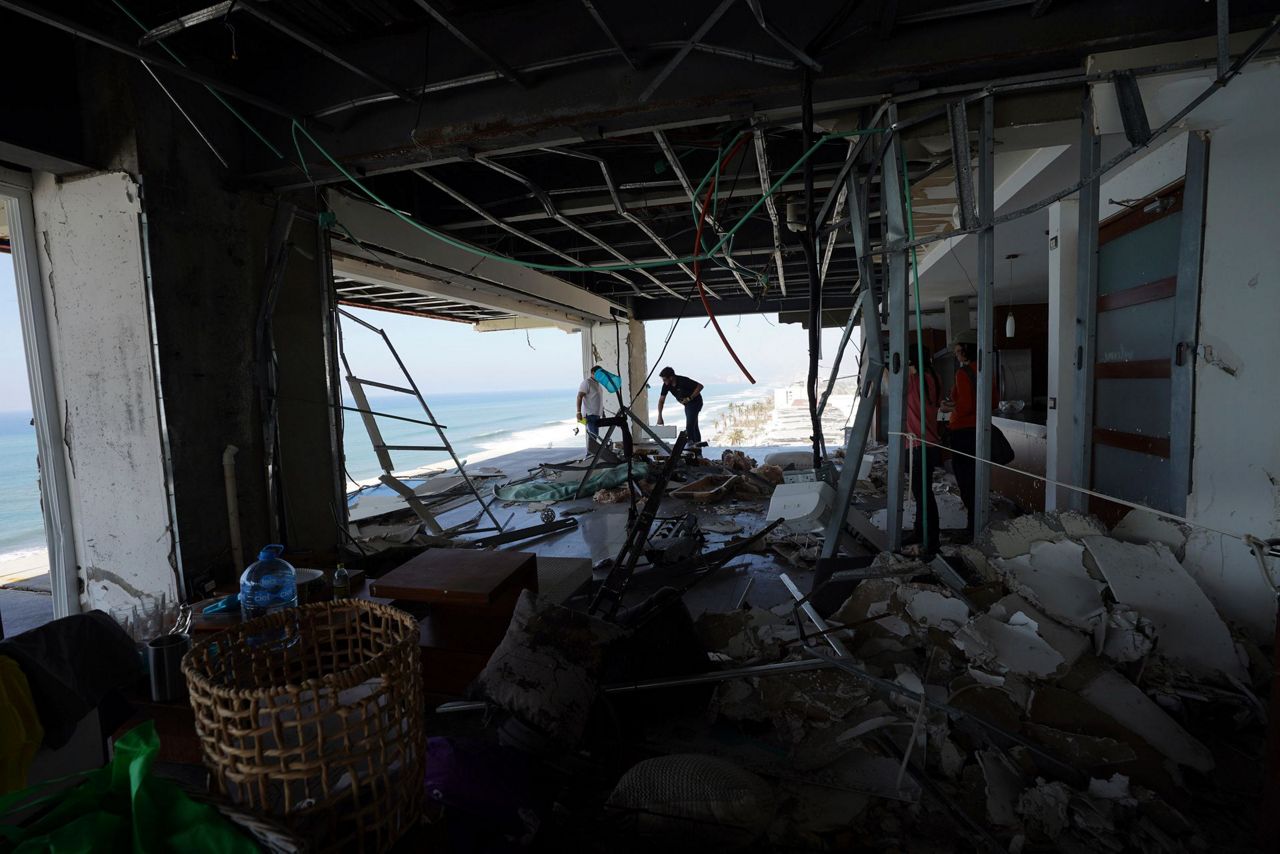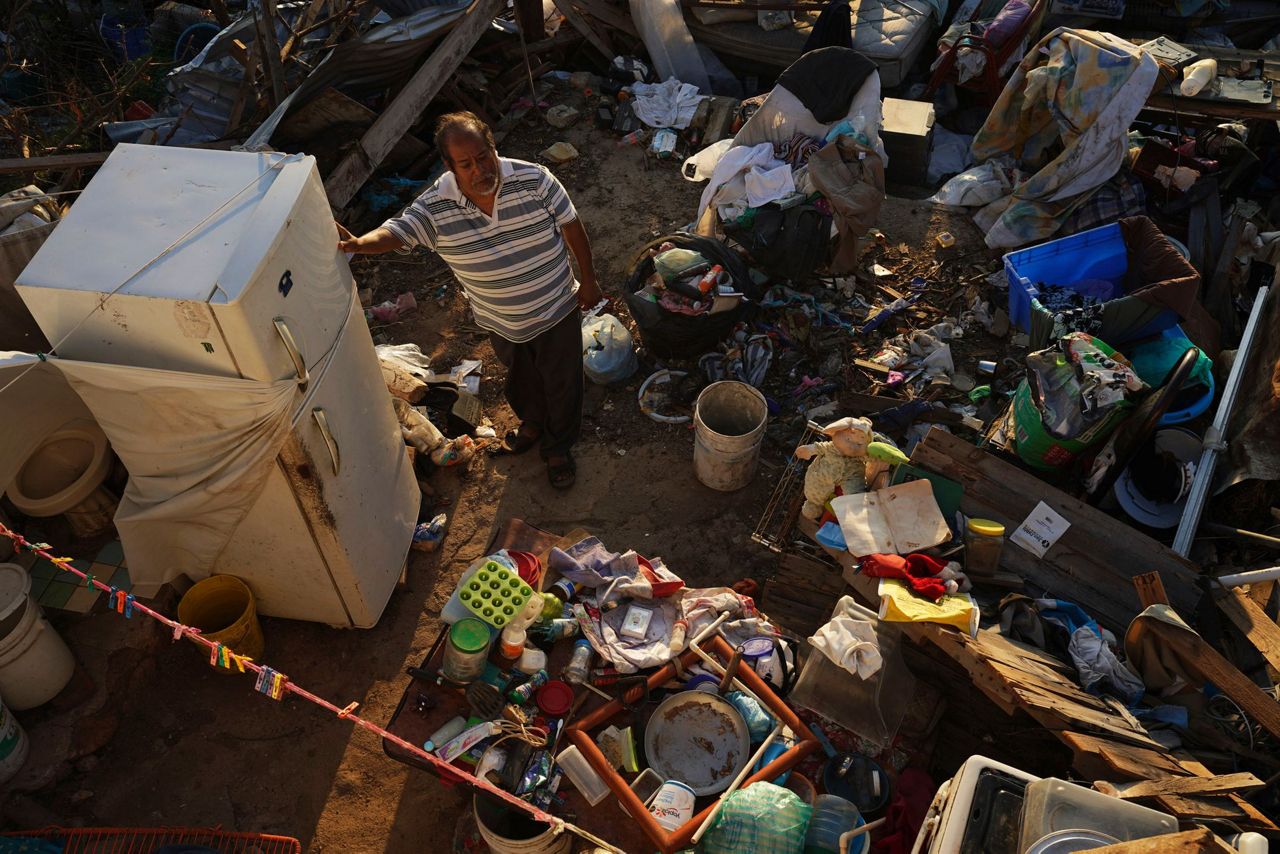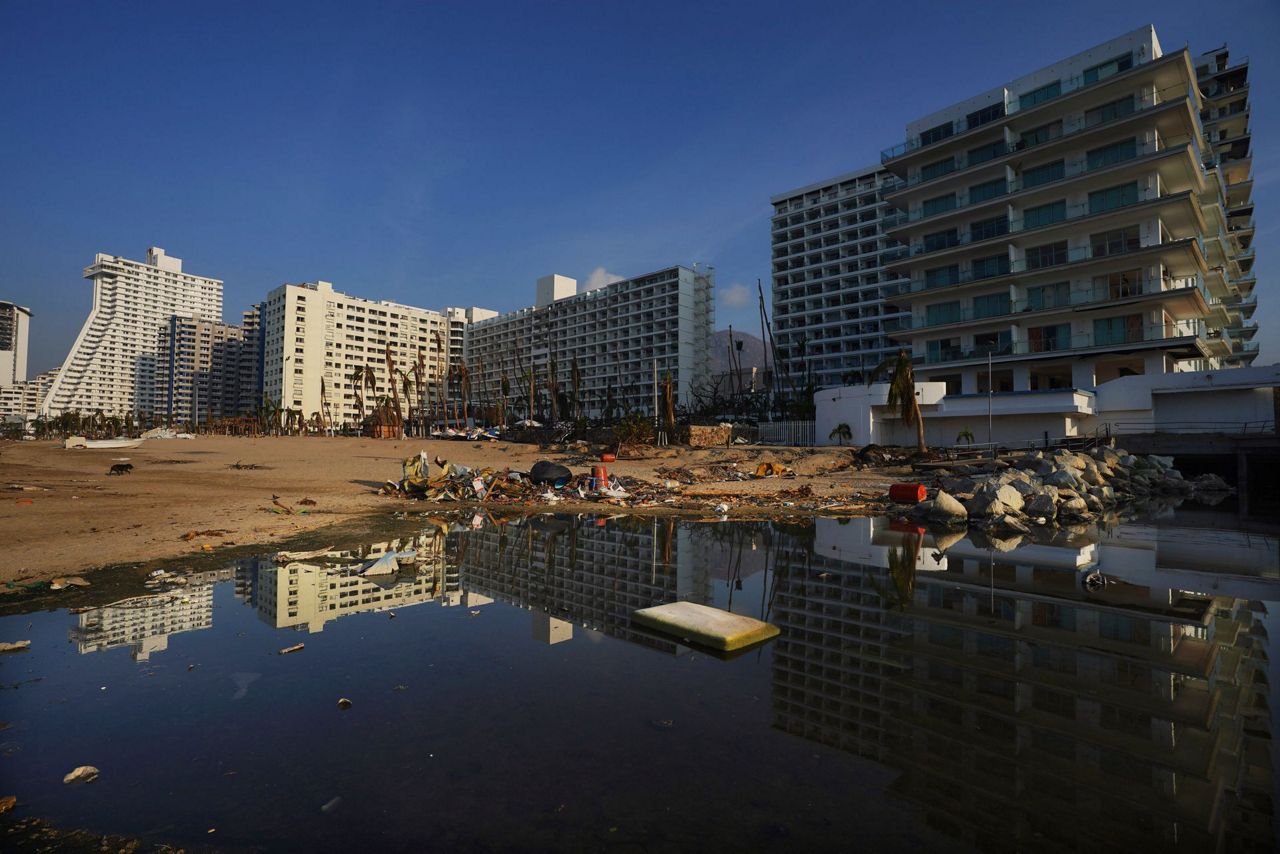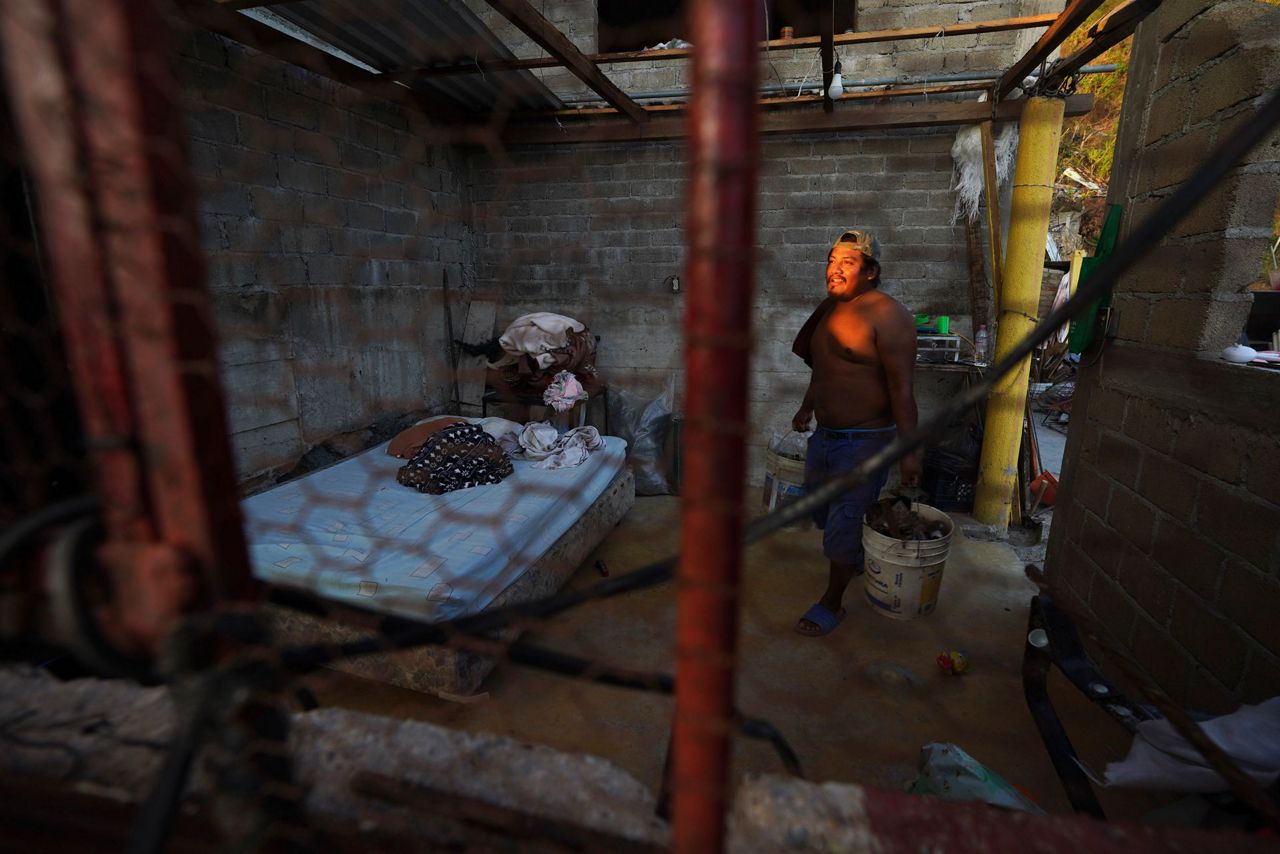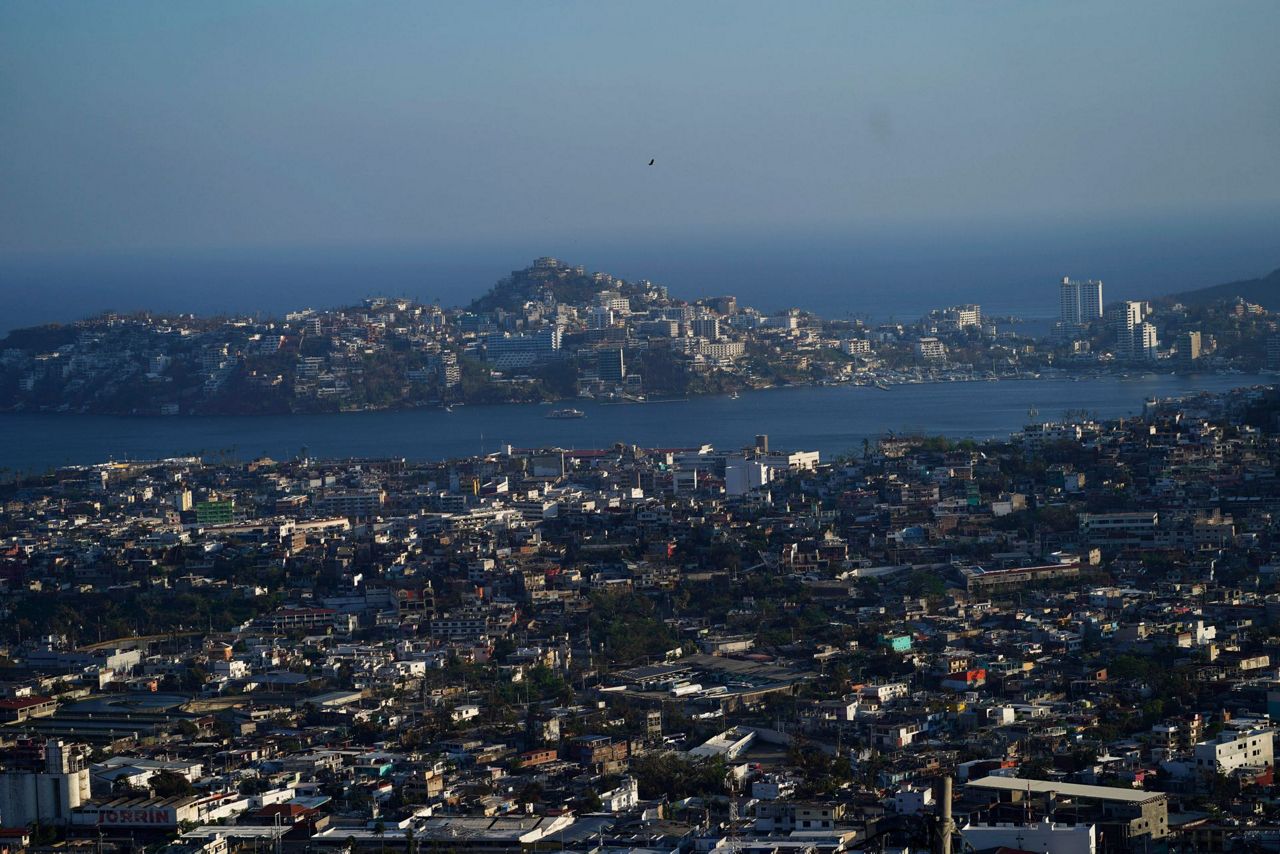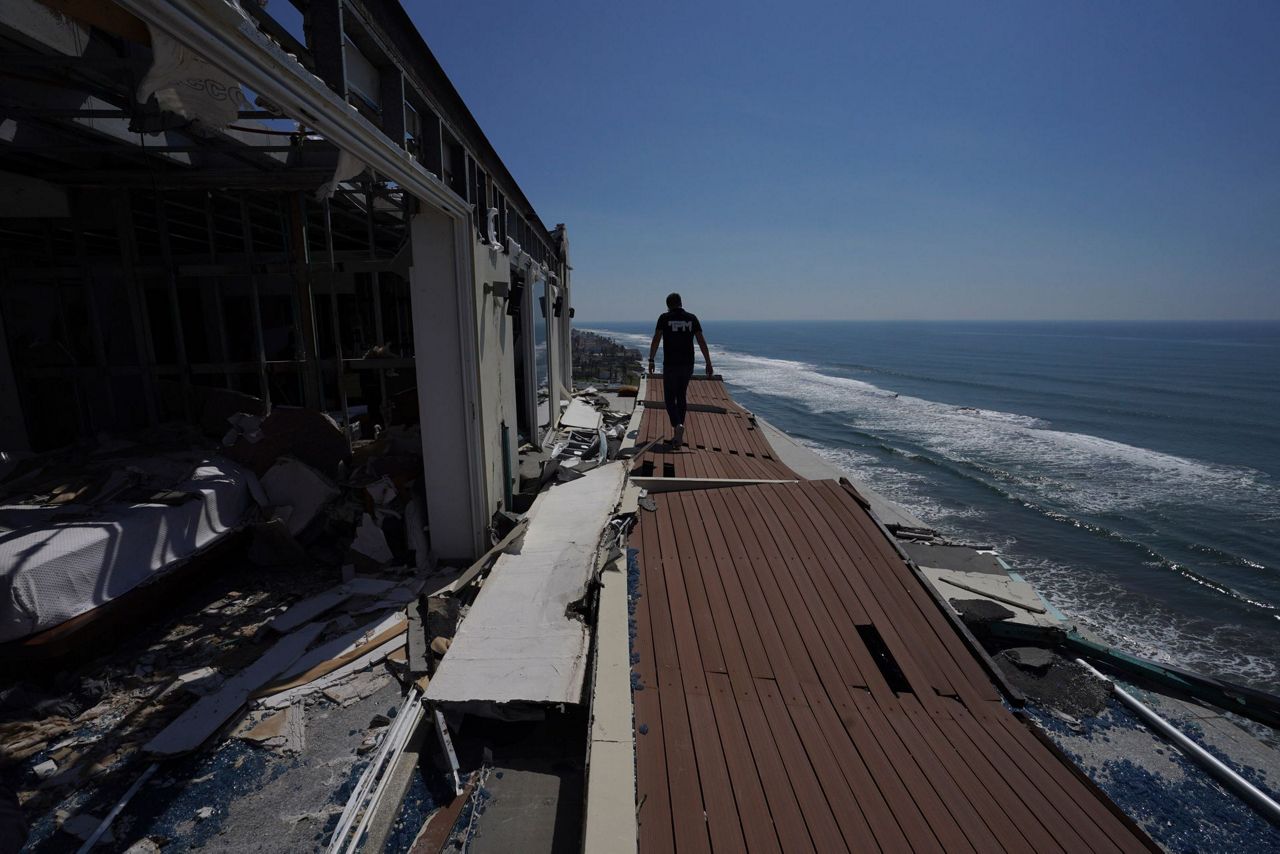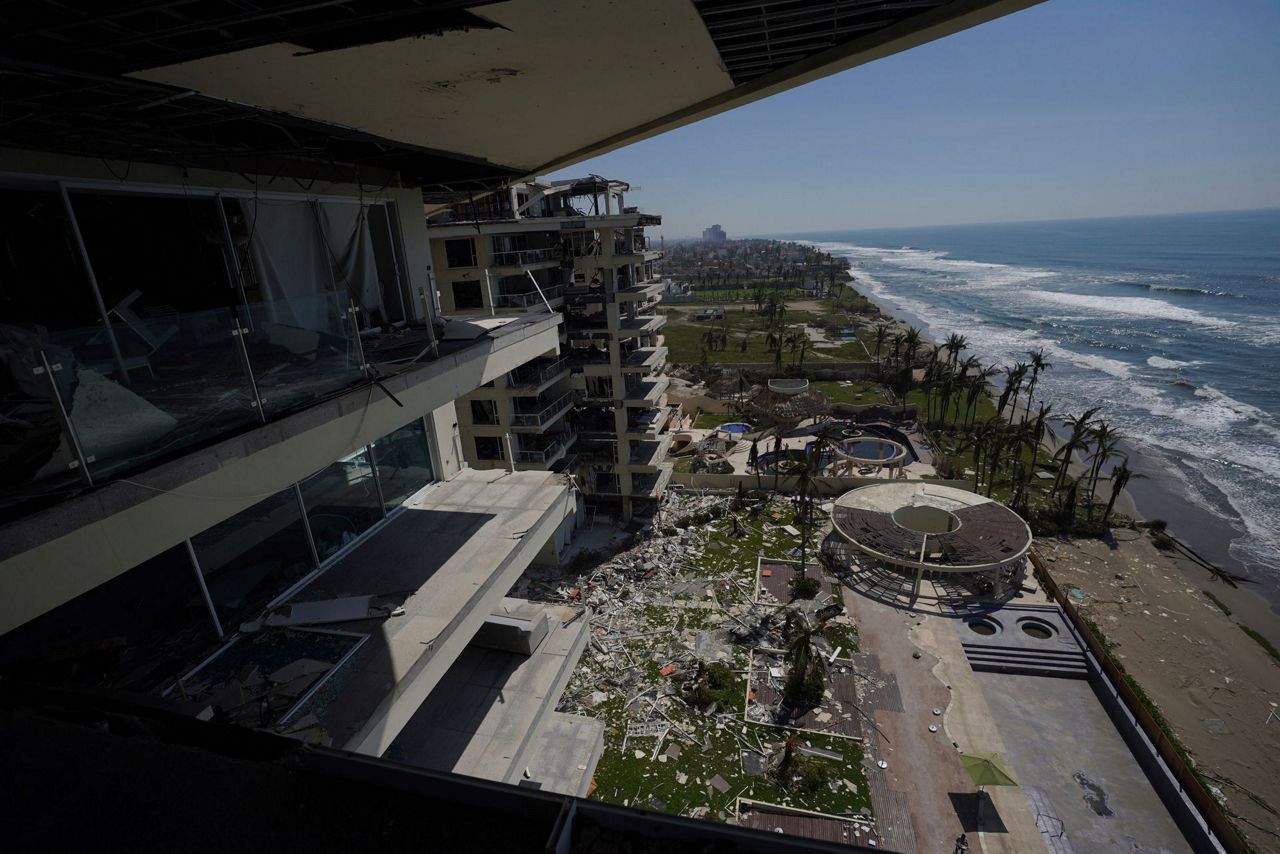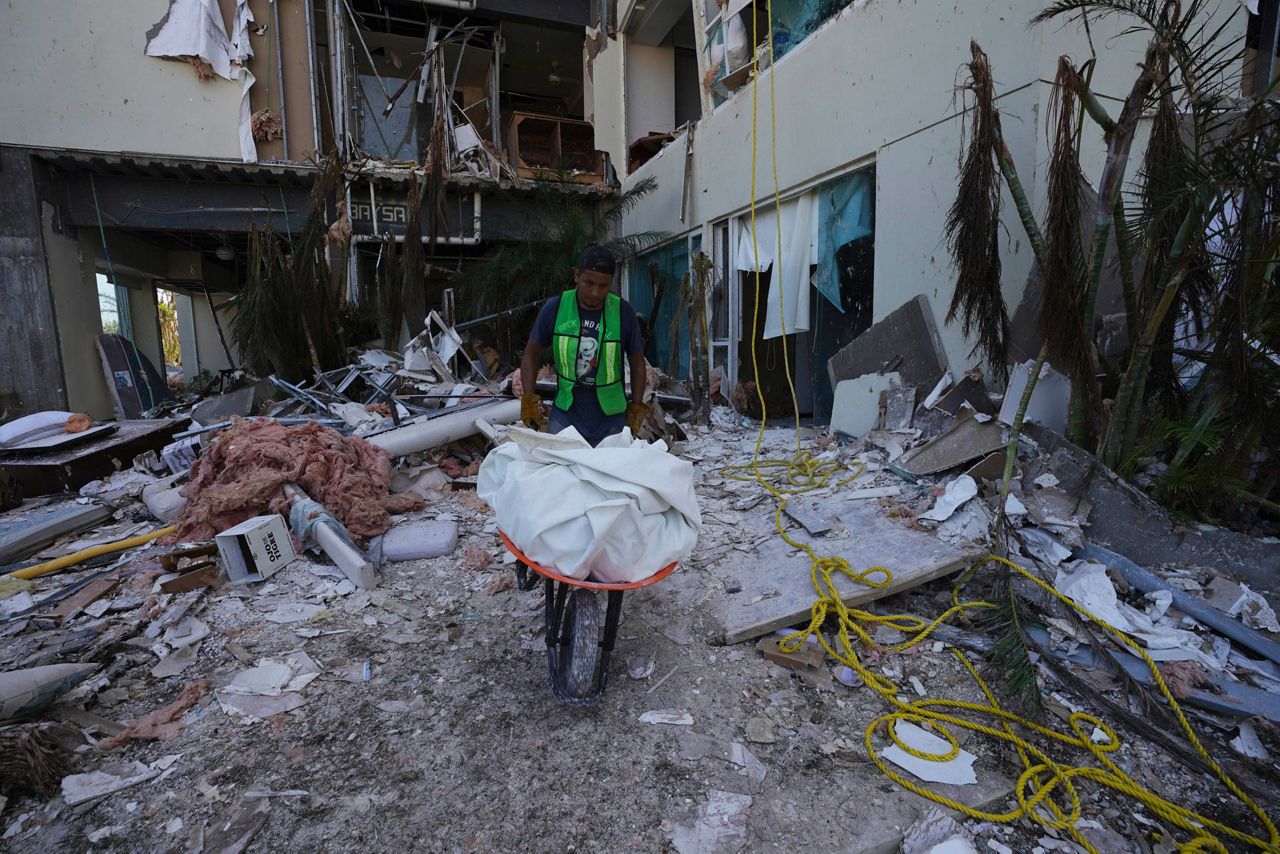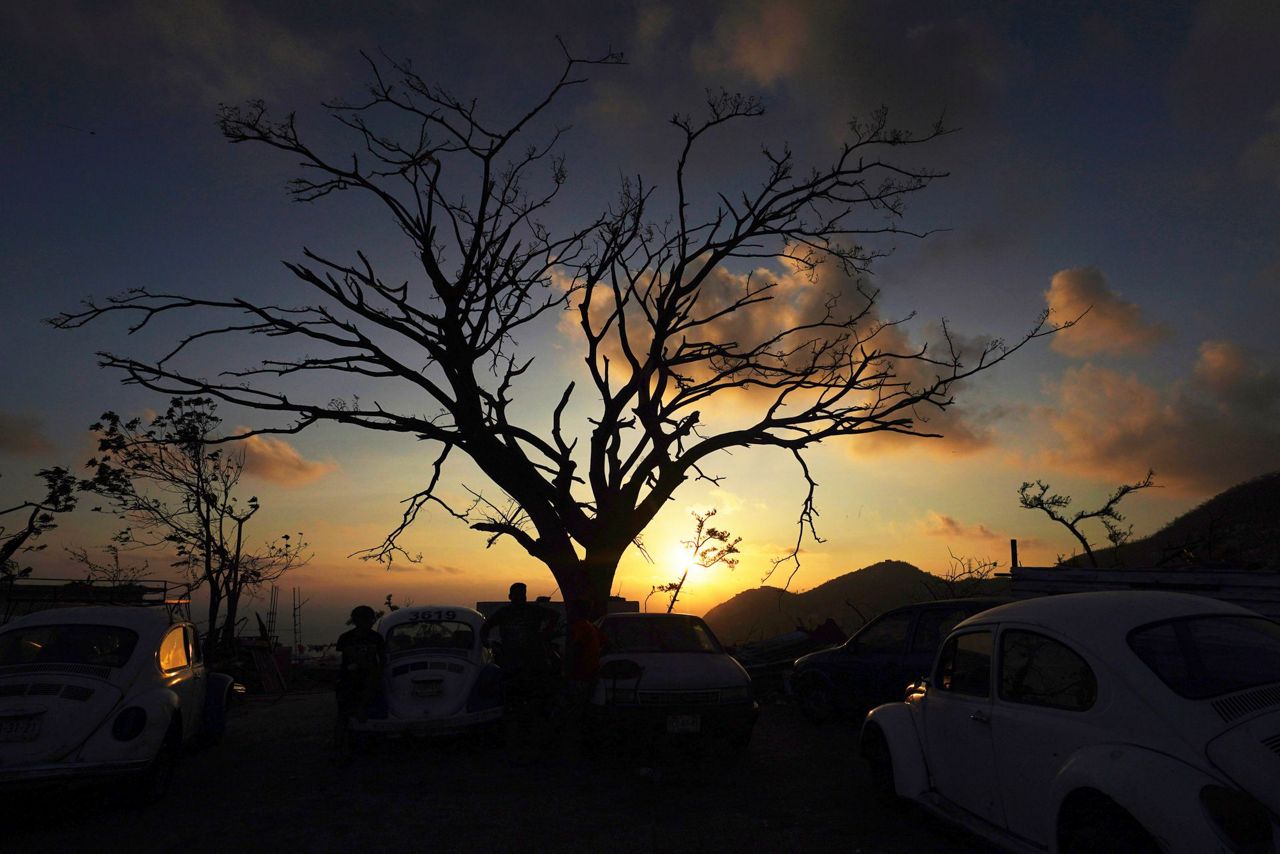ACAPULCO, Mexico (AP) — The 58-year-old woman, a cook by profession, toiled on a recent afternoon inside a luxury apartment with expansive views of the Pacific, putting Gucci and Dior shoes into a bag to take to her employer. Around her only the apartment’s skeleton and piles of debris, walls and windows stripped by Hurricane Otis, remained.
But Rufina Ruiz was optimistic. Her house, in a suburb near the entrance to Acapulco, only flooded, while homes in the adjacent neighborhood were “buried.” And she still has a job, even though that meant she was not home when the government census of the hurricane’s victims was taken, which would have translated into aid. “I’d rather work,” she said.
More than two weeks after Otis went from tropical storm to Category 5 hurricane in a record 12 hours, catching authorities and residents flat footed, this city of 1 million, a blend of big hotels and impoverished suburbs, tourism and drug violence, is trying to recover at a similarly unequal rhythm.
Cars can again drive down the city’s main streets past rubble and felled palm trees. Signs around the city read “free food.” There are lines everywhere: for water, food, access to pharmacies.
Acapulco's wealthiest residents, who fled either before Otis or immediately after, began to return to take stock of their seaside properties.
Along Acapulco’s coastal boulevard that encircles the bay once bobbing with yachts, a young man pulled tables and chairs out of a small restaurant. Nearby, workers nailed boards over broken shop windows.
Soldiers and National Guard troops fill the central streets, easily outnumbering the once ubiquitous palm trees.
Some residents complain that authorities didn’t provide more information about what was coming. Even those who heard Otis had become a Category 5 hurricane didn’t understand what that meant.
Mariel Campos, who lives in one of Acapulco’s poorest hillside neighborhoods, used to work at a hotel. She says she was offered to keep her job — cleaning up debris instead of making beds — but she turned it down because she would have paid more than half of the $16 a day she made for skyrocketing transportation costs to and from her damaged home.
Officially, at least 48 people were killed by Hurricane Otis and dozens more remain missing. Otis damaged 80% of the hotel infrastructure and 96% of businesses in a city that lives mostly from tourism even though it has lost some of its luster in recent decades as organized crime tightened its grip.
The federal government earlier this month announced a $3.4 billion reconstruction plan with aid for families, small business owners and hotels and says basic services have been almost completely reestablished. On Thursday the government of President Andrés Manuel López Obrador declared an end to the emergency.
“It’s outrageous that they think living in these conditions is not an emergency,” said Ana Mextlitzin Méndez, a 44-year-old psychologist, whose neighborhood, away from the tourist corridor, still has no power.
Neighbors around the city have organized themselves to pile branches and open paths through the streets, but they haven’t been able to remove all of the debris. In some places they burn it, while other streets remain blocked.
Humanitarian organizations like Doctors Without Borders have warned of the potential for illness like dengue and many of the damaged hospitals are full. The humid air is heavy with dust and mosquitoes are everywhere.
Méndez recognized that the government can’t do everything on its own, but she said residents need some guidance, something they haven’t received.
The losses are astronomical, but so was the fear, at least in the early days after impact.
“You heard gunshots, screams,” said 36-year-old Alci García, who had to move his wife and 2-year-old daughter out of the city as soon as he could because his daughter got sick. Without electricity, water, food or security, it became “save yourself,” he said. They still haven’t returned to Acapulco.
Daniela Fiesco, 40, concedes that she was among residents who took what they needed from stores right after the storm. She ran for water, milk, food for her dogs and took all she could carry. But then she was also among her neighbors who organized themselves to make barricades on their street and watch each other's backs.
“They said people were breaking into homes and everyone panicked,” she said. “It was really crazy.” Young men armed themselves with sticks and machetes. She thinks the city fell into a “collective hysteria.”
There were also gestures of solidarity that often arrive before any government aid.
A community kitchen opened in front of Fiesco's house that only just shut down a couple days ago.
High up on a hillside above the port, Alejandra Hernández sheltered several neighbors’ families on Oct. 25 when Otis hit because her in-laws’ house was one of the few made of concrete in the poor neighborhood.
Very few cars make it through the neighborhood's steep, narrow streets with the exception of the famous — and now ancient — Volkswagen Beetles, affectionately known as “vochos.”
Here, where the Acapulco bay stretches out before residents, the only aid to arrive has been from private citizens or churches, said Victorino Justo Bolaños, from the site where his house stood. Now there’s just a concrete room and a bit of ground where a kitchen used to stand. But along with the kitchen, the roof and wooden walls blew away.
Nearby a couple of teens found one positive thing amid the destruction. Watching their homemade kites dive and soar, 16-year-old Anthony Sánchez said, “now that there are no wires we can fly.”
____
Follow AP’s coverage of Latin America and the Caribbean at https://apnews.com/hub/latin-america
Copyright 2023 The Associated Press. All rights reserved. This material may not be published, broadcast, rewritten or redistributed without permission.



